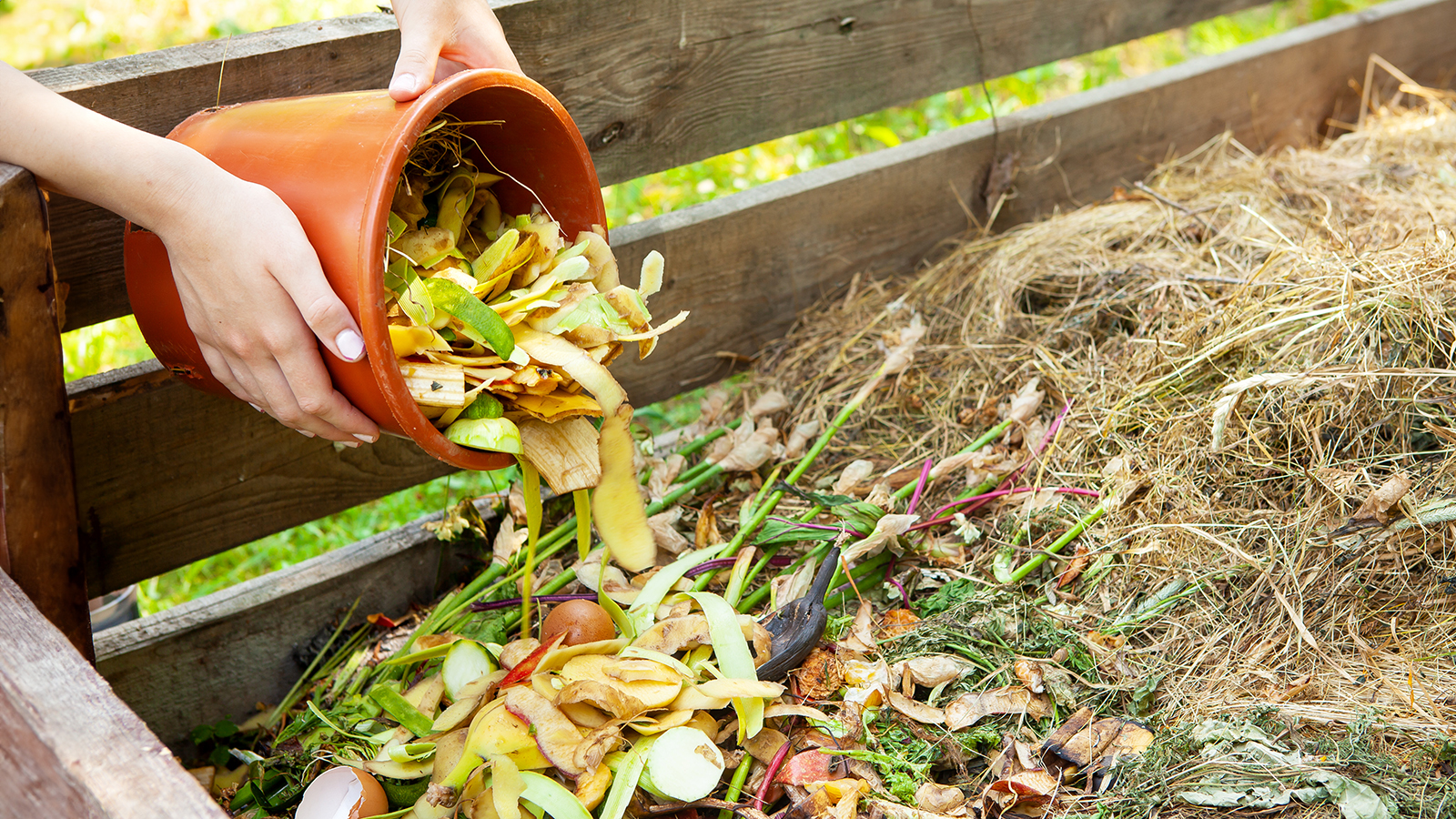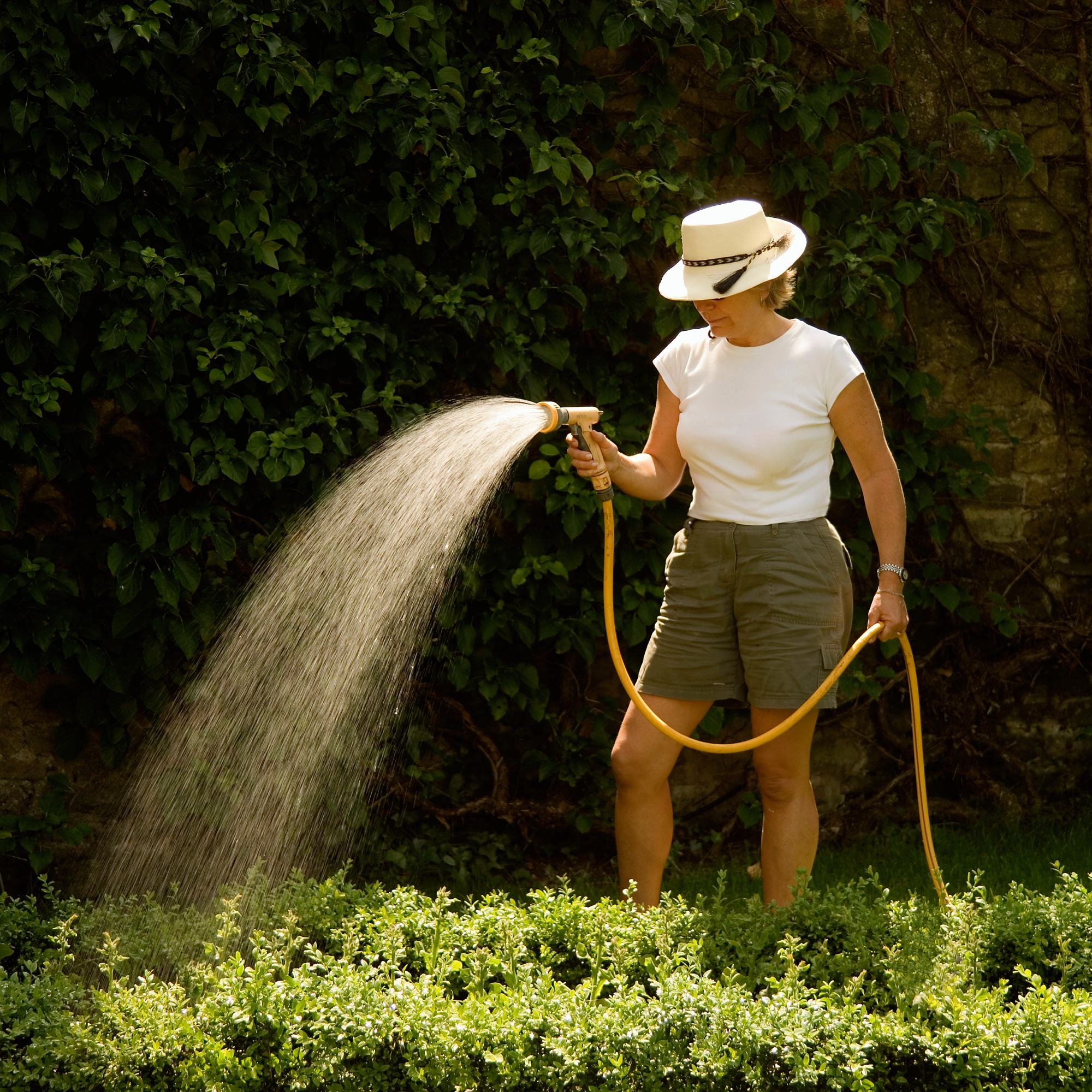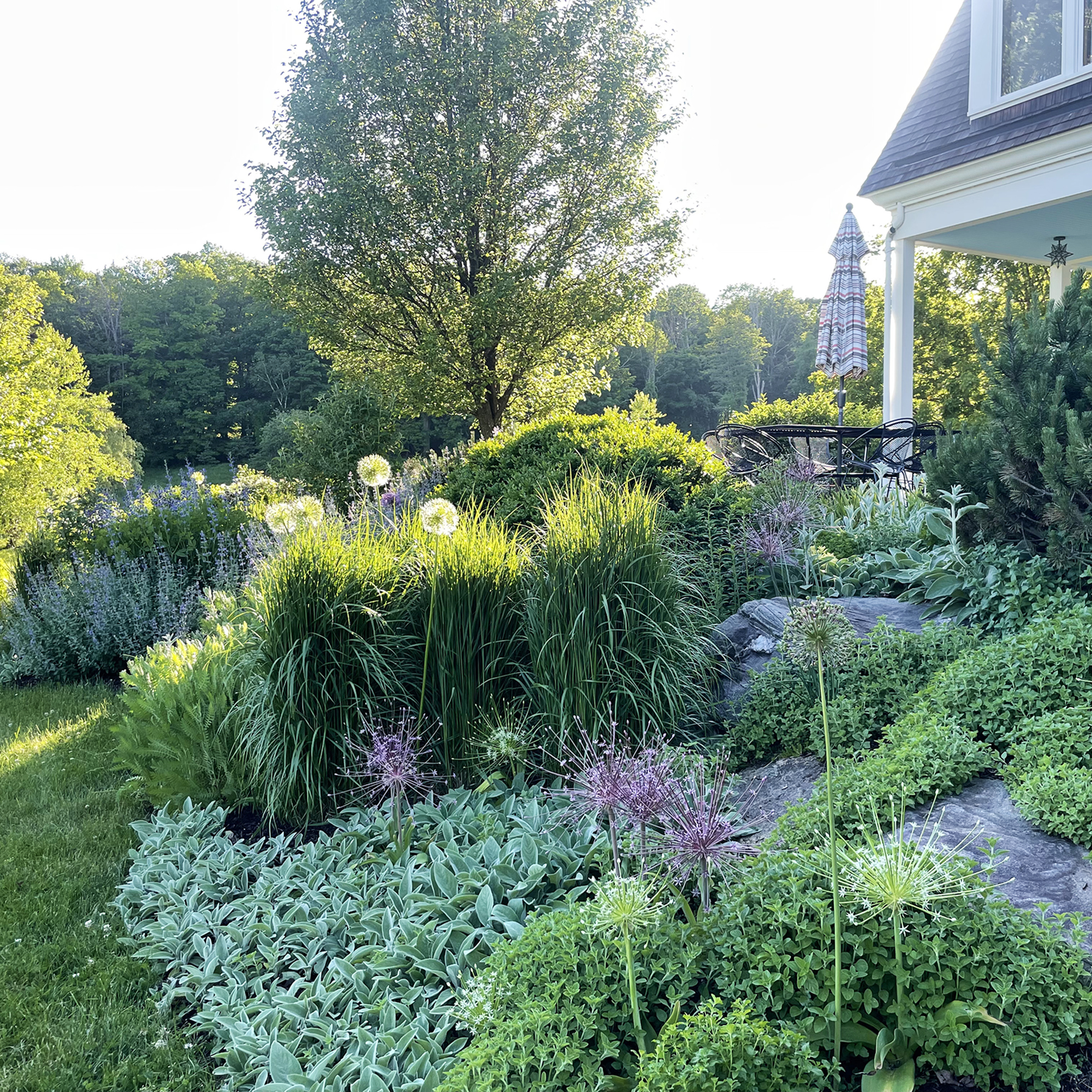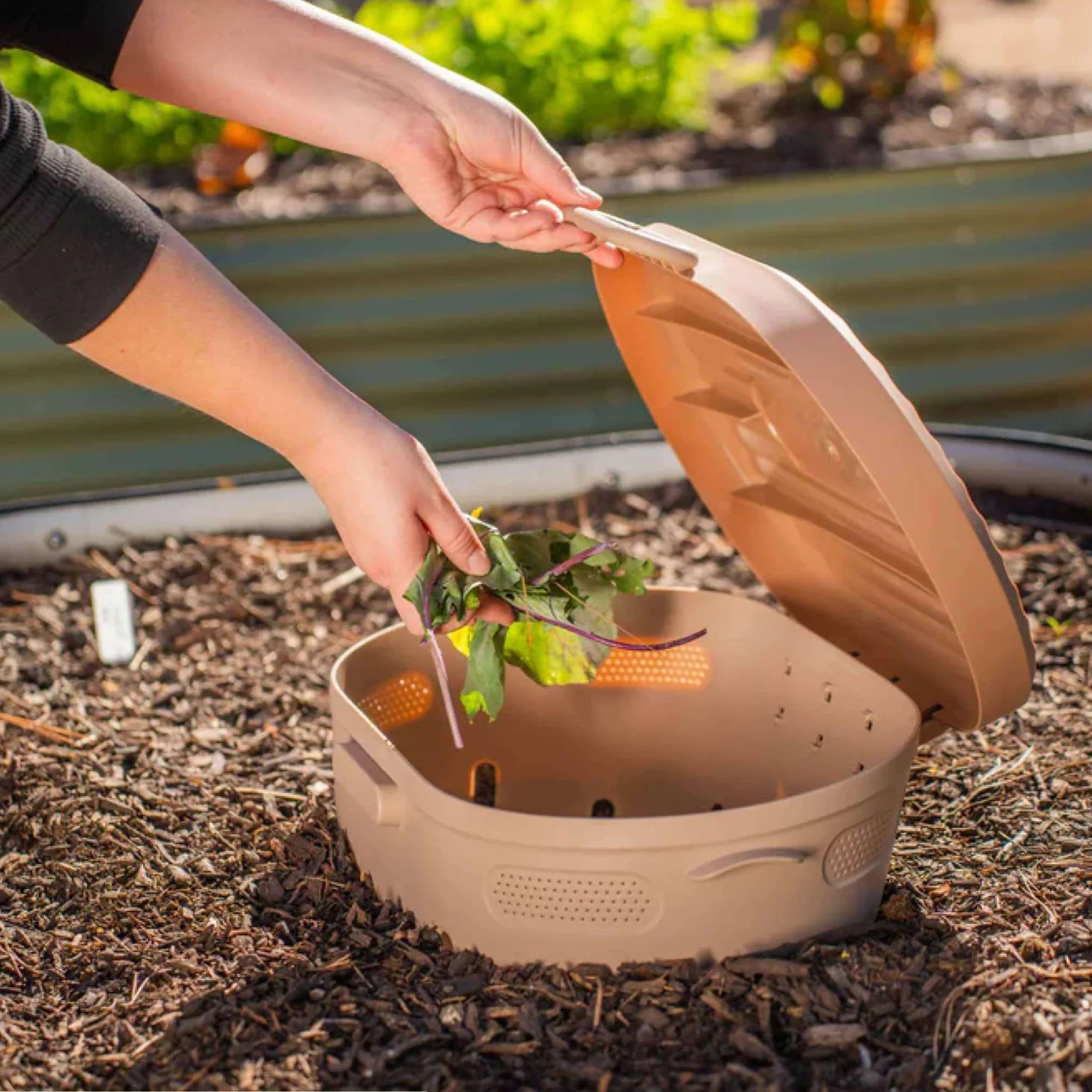What Can Be Composted? – And What You Should Never Put In A Compost Pile
Knowing what can be added to the compost pile makes all the difference between producing garden gold and a soggy, smelly mess. Learn how to get it right every time.


What can be composted? And what shouldn’t go in the compost pile? These are important questions to answer before getting started. Composting is great for your garden, providing free nutrients you can add to the soil. It’s also a good way to limit what you throw in a landfill. But to compost successfully, you need to know what is compostable and what is not.
When learning how to compost, one of the things that most trips up gardeners is adding the correct materials to achieve the ideal ratio of compost greens and browns. Below, we will discuss what to put in a compost bin (or keep out) and why.
What Can I Compost?
In general, organic materials are compostable. This doesn’t mean all organic items should go in your compost, but many can. There are two main types of organic materials that are compostable: so-called "brown" substances that are rich in carbon, and nitrogen-rich "green" items.
Carbon-rich brown materials include:
- Dried leaves and twigs
- Straw
- Untreated sawdust and wood chips
- Newspaper
- Paperboard
- Cardboard
- Many types of non-glossy paper, including paper napkins and plates, notebook paper, paper bags, baking cups, and paper towels.
Always shred paper and cardboard before putting it in the compost, or it will take too long to break down.
Green, nitrogen-rich organic material includes grass clippings and most of your kitchen waste. Most of the latter is appropriate for compost, including:
- Fruit and vegetable scraps, including peels, but remove any stickers
- Coffee grounds (with the filter)
- Tea bags (no staples)
- Crushed eggshells (rinse the shells first)
- Most food waste, including bread, corn cobs, flour, rice, oatmeal, and other grains.
Other items that can go in compost include ground-up bones and vegetarian animal manure (e.g. cows, horses, rabbits, hamsters, etc.)
Gardening tips, videos, info and more delivered right to your inbox!
Sign up for the Gardening Know How newsletter today and receive a free copy of our e-book "How to Grow Delicious Tomatoes".
What Not to Put in Compost
Just as important as knowing what to put in compost bins is knowing what doesn’t belong there. Inappropriate ingredients can create a lot of composting problems and attract unwanted visitors.
Meat, fat, and dairy are most commonly added to the compost pile in error. These types of kitchen scraps are generally not advised for composting because they will attract wildlife you don’t want close to the house. Even if your bin is secure, you will get unwanted critters trying to break into it. Fats to avoid include butter, oil, and mayonnaise.
However, you can compost more of these products by using an alternative method, such as electric composting, which uses heat to break down the materials, or bokashi composting, which ferments them. The Reencle Home Composter, available in the Gardening Know How Shop, is a cutting-edge appliance that creates plantable compost in a few short weeks and nurtures microbes in the process. Alternatively, try this bokashi composting kit from Amazon.
Other items you should not compost are:
- Non-vegetarian animal waste – Dog and cat waste or feces from other meat-eaters can be dangerous in compost. Your compost pile may or may not get hot enough to kill harmful bacteria or parasites. It’s not worth the risk.
- Treated wood – Chemically treated sawdust, woodchips, particleboard, and other wood scraps introduce unhealthy substances into your compost.
- Compostable food service materials – Food containers and utensils that claim to be compostable will not break down readily enough for the home compost pile. These should go to a landfill where they will have much more time to decompose.
- Shiny or coated papers – Paper products with a waxy coating or that are glossy do not break down well in compost. Also, avoid papers with metallic embossing or ink.
- Weeds – Weeds are not bad for compost, but use your judgment when adding them. Unless you are hot composting, weed seeds might not be destroyed by the temperatures in the compost. Some weeds reproduce from small pieces. You could end up spreading persistent or invasive weeds throughout your garden.
- Diseased plants – If you are battling disease in some of your garden plants or houseplants, dispose of them with regular garbage. Diseases can spread through compost. Also, avoid composting plants that have been treated with herbicides or pesticides.
- Black walnut waste – Black walnut trees create substances that are toxic to some plants. Do not add the nuts, leaves, or twigs to compost.
- Ash – Do not add wood ash, charcoal ash, or coal to compost. Wood ash takes too long to break down and is highly alkaline. Charcoal and coal contain substances toxic to plants.

Mary Ellen Ellis has been gardening for over 20 years. With degrees in Chemistry and Biology, Mary Ellen's specialties are flowers, native plants, and herbs.
-
 When Is The Best Time To Water Plants? Expert Guide To Keep Plants Happy Even In The Heat
When Is The Best Time To Water Plants? Expert Guide To Keep Plants Happy Even In The HeatProper watering can make or break your garden. Learn the best time to water plants so your garden can be healthy all summer long.
-
 These 350 Amazing Private Gardens Across The US Are Normally Off-Limits, But You Can Visit Them This Summer – Find One Near You
These 350 Amazing Private Gardens Across The US Are Normally Off-Limits, But You Can Visit Them This Summer – Find One Near YouDon't miss the chance to visit these local gardens offering a memorable day out and a wealth of inspiration for new and experienced gardeners alike.
